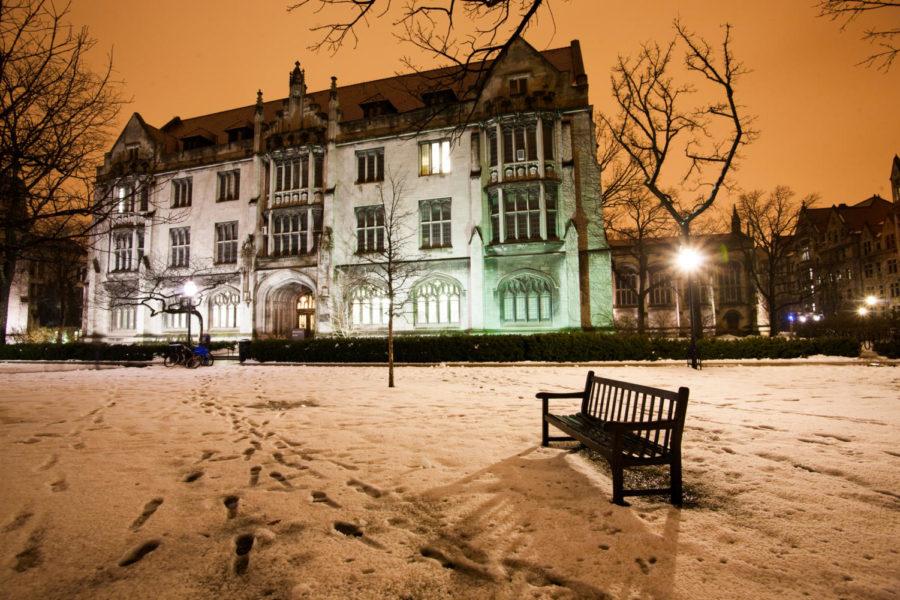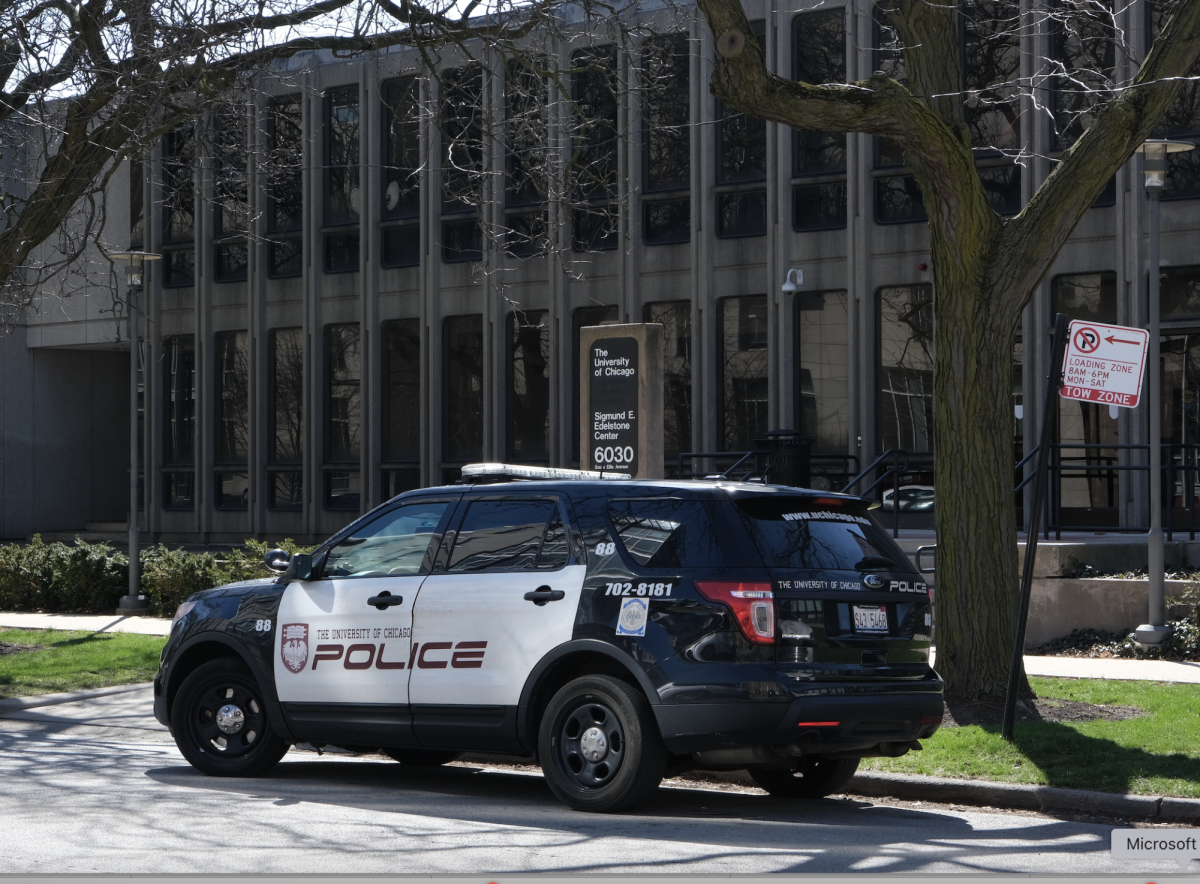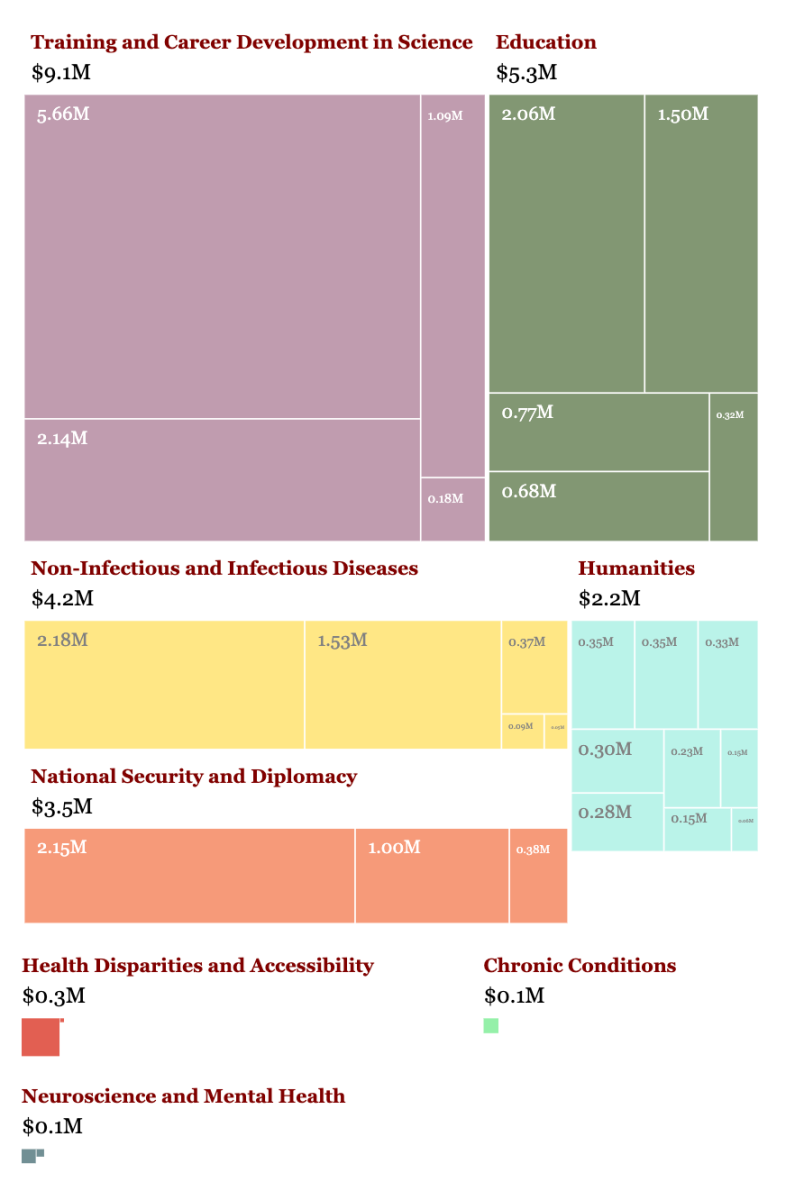While adjusting to college life—learning how to get all your work done, do your own laundry, and squeeze in a reasonable amount of sleep—the threat of getting mugged hardly takes priority. That changed for me when, just after midnight on October 10, 2011, three weeks after arriving on campus as a first-year, a gun was put to my head on the Main Quad just steps outside of Swift Hall.
It was after dinner on my third Sunday of college, and I was heading to Harper Reading Room with a thermos full of coffee and my Fagles translation of Homer’s Iliad, prepared to make some headway for the next day’s Human Being and Citizen class. It took me a few hours, but I finished and had slumped back in my chair when I got a text message from my best friend from high school at around 11 p.m.
“You free to talk tonight?”
Done with my work and realizing it was getting late, I packed up my things, headed downstairs, and called him from the Harper Quad.
Both having just completed our first few weeks of college, we shared awkward moments from orientation and discussed the Iliad, which we were both reading for introductory humanities classes. This went on for a half hour before I made my way to the front of Swift Hall, where I sat down on a bench facing the center of the Quad.
We were still talking around midnight when three young men turned onto the Quad from University Avenue, walking past Walker and Rosenwald, and then past me in front of Swift. They were casually talking in low voices and laughing, but each of them stared as they slowly passed.
Sitting on that bench, I realized that I had rehearsed this moment just two weeks before in a workshop during Orientation. In one exercise, my housemates and I were asked to place ourselves along a spectrum between two walls, illustrating our responses to certain prompts.
“You’re walking alone at night,” one of the scenarios began. “And an African-American man is coming toward you on the sidewalk. Do you cross the street?”
We spread out. Well over half the group stood at the wall indicating, “Don’t cross,” while just a handful, including me, stood somewhere in the middle.
“You don’t know that this guy is up to no good, and the prompt doesn’t say anything negative about him,” I remember hearing. “So who are we to judge him?”
One girl stood alone near the “Cross” side of the room.
“I have the right to do whatever makes me feel safe,” she said, and left it at that.
This scenario flashed before my eyes as the men walked past. All three of them were black. It was a similar choice: Profile or don’t profile. Is it fair for me to label them as sketchy? I wondered. Do they look like they could be University students? I quelled my doubts with another fact I had learned at the workshop: all kinds of students go here. I asked whether I had the right to judge them. I decided that I didn’t.
A few minutes after the group had passed, I heard footsteps behind me in the grass. I turned around to find one of the men pointing a gun at my head, standing just an arm’s length away.
“Give me the phone,” he said simply.
Almost too quickly, I handed over my iPhone—my friend still on the line. Next, he eyed the backpack sitting next to me on the bench. That’s when panic kicked in. My backpack, containing my new laptop, all my schoolwork and books, my cash, my journals and various mementos—my material life—was about to be pulled away from me.
“No!” was all I managed to say, weakly reaching for the bag. But he thrust the gun at my head and said “I’ll shoot!” He pulled it over the bench and retreated to the alley between Cobb and the Administration Building, still pointing the gun at me. Noticing I had stood up, he shouted, “Stay there!” I sat down until they had all run through the alley, then instinctively scanned the Quad for a blue light phone. Spotting one in the Classics Quad, I ran through the bushes and hit the button at 12:05 a.m.
“I’ve been robbed at gunpoint!” I shouted into the receiver, interrupting the woman who answered. “By three black men, running away on Ellis!”
The woman dispatched an officer, who arrived about three minutes later through the Classics gate. After I showed him the bench and explained what had happened, we waited for the Chicago Police for formal questioning, after which he drove me back to my dorm.
It was three in the morning when I wandered up the stairs of my dorm and went straight to my RA’s room. I knocked on the door, telling her it was an emergency.
“What’s wrong?” she asked.
“I was just mugged at gunpoint,” I began, suddenly choked with tears that continued through the night. I spent the next half hour on the phone with my mother, who was stunned but supportive as she delivered calm advice: call and cancel the credit cards and Dad and I will pick you up tomorrow. I couldn’t sleep, so I wrote—the notes from which provided the basis for this article.
The next day, I couldn’t even go outside alone. My RA accompanied me to breakfast and my appointment at Student Counseling, which just brought back memories from the previous night. I cried again. Still, we made progress: they e-mailed my professors and told them why I wouldn’t be in class. They allowed me to check my e-mail and use their phone to call my parents.
A grad student had e-mailed me saying that he had found my books strewn about the Midway and collected them for me to pick up—a bit of kindness that made the entire ordeal easier. I gathered the books in a shopping bag, packed a week’s worth of clothes, and met my Dad in front of B-J.
We returned to the Midway and picked through the contents dumped from the backpack—wrappers, some coins, but nothing useful or identifiable—and drove to our home in Barrington, an hour away in the northwest suburbs. I spent the rest of the day playing in the yard with my dogs and sleeping, now acutely aware of how safe I felt in my childhood home.
•
At first, I considered transferring, thinking of how things might have been different if I had chosen to attend some scenic, rural liberal arts college. But before long I was busy with schoolwork and joining RSOs, and I was able to put the mugging out of my mind.
Still, something I had written down that night continued to nag me: Chicago is my home now, and I’ve got to learn how to live in it.
After some months, I figured that a good starting point would be the conversation already happening on campus about crime. In late January, I saw an opportunity: an RSO called the Chicago Justice Initiative (CJI)—more like a political salon, I learned, than the activist group its title suggests—was hosting an open discussion on the topic of “campus and community security.”
The opening question that night was whether Hyde Park has “a crime problem.” Ambivalence was present from the start.
“Not a crime problem per se,” one student said. “The bigger problem is the perception of serious crime that is distorted by students.” To some, crime wasn’t as threatening as “the presence of so many guards and UCPD cars everywhere.”
Race was a factor. Several black students recalled officers asking them to show identification for little or no reason. Still fresh was the case of Mauriece Dawson, the student arrested in 2010 for allegedly causing a disturbance in the Regenstein. The arrest, seen by many as racially charged and excessive, sparked a heated debate about police accountability that has continued to this day. One student at the meeting called it “offensive to those in surrounding neighborhoods.”
Singled out for scrutiny was the UCPD’s apparent stance on whether students are free to go where they please: You can go anywhere, so long as you “remain vigilant.” People at the meeting scoffed. “The University has constructed an enormous network of blue lights that clearly dictate a boundary of where students should and should not be,” said one student.
Frustration with crime was certainly there. And it did seem that the reality of muggings like mine was registering.
But the recurring line of argument seemed to run like this: Violent crime is not something to be dealt with directly—it’s too big for students to avoid, and too tied up with social forces beyond our control for the police to make a dent. Meanwhile, the UCPD’s costly missteps are making life worse for more students every year. Better to just keep our heads up.
One comment struck me as something I would have believed before the mugging.
“I resent the idea that these criminals should affect my choices…I just need to live my life and ignore it.”
•
About two weeks after the mugging, I got a new iPhone and restored my old number. I had no reason to think that any of the information logged into my old phone could still be tied to me, but a friend of mine pointed out something strange: someone had been using my phone number to play the mobile game Words With Friends.
I Google-searched for the username and found what I was looking for within minutes: an 18-year-old male who had attended Kenwood Academy tweeted “iphone 4 stuntin” the night of the mugging. Heck, we even had a mutual friend on Facebook—a friend of mine from middle school who had moved to Chicago.
I forwarded this information to the UCPD, who within a few days called me to verify the serial number of the phone. It turned out that the phone was in the hands of someone named Edward Davis. He was taken into custody for possession of stolen property.
Though I could not identify him in a lineup as the man who mugged me, the Chicago Police were able to get Davis to confess to the crime, likely by exaggerating the evidentiary weight of security camera footage they had of him robbing me. However, Davis continued to claim that the gun was a fake and that he was alone—two parts of the case that were never resolved.
I continued to call the attorneys to ask when the trial would be so that I could recover my property, which had been held as evidence. Each time, I was told that the trial date was near, but had been pushed back due to hearing cancellations or attorney changes. Finally, on January 15, a full 15 months after the crime, I received notice in the mail that Davis had pled guilty to aggravated robbery and was sentenced to four years in prison (including the time he served before the sentence). I got the closure of a solid conviction that few victims of muggings ever do.
And so a man my same age was about to spend the same four years behind bars that I’m spending at one of the best universities in the world. Our meeting—however short and unfortunate—was a live example of systemic inequality.
While I attended events rallying against “mass incarceration,” I had also fueled it with my own efforts to seek justice against the man who had mugged me. I don’t feel guilty about what I did, nor do I in any way excuse the mugger’s behavior, but I feel obligated as a citizen of social conscience to situate this experience in a broader context of inequality. While I condemn the mugger and the pain he brought into my life, I realize that he likely faced challenges I couldn’t even begin to comprehend.
•
For whatever reason, I hadn’t felt comfortable speaking up at the CJI meeting.
For one, I felt a great deal of shame about getting mugged in such a public place. I had been that first-year who thought he was immune to crime and was doing exactly what the police told us not to: being out alone at night, using electronics, and sitting down rather than purposefully walking somewhere.
But there was something else: one of the effects of realizing the need for security around campus is that you end up qualifying any criticisms of the police. You become moderate. I don’t think it’s unreasonable; in fact, I think most students here have a centrist opinion of the UCPD.
Even still, I have been to several activist events at the University, from forums on the need for a South Side trauma center to the annual “Disorientation” event (a follow-up to Orientation that presents a far less rosy take on town-and-gown), and I’ve noticed that opinions of the UCPD have tacked toward the extreme.
“Lost in all the commotion following the protest and arrests of January 27 has been the question of whether the University of Chicago might be well served in dissolving its private police force,” wrote one graduate student in a recent letter to the Maroon, calling the student body’s acceptance of the UCPD’s existence an “unreflected assumption.” Mauriece Dawson, the UCMC protests, incidents involving racial profiling—it all amounts to a “heavy price.”
My first and strongest reaction to this view is that this person has never been the victim of a violent crime. The author of this piece is right to ask for an analysis of the UCPD’s costs. But the fact is that only a small fraction of students become victims, and it is easy to lose sight of what that feels like when you’re focusing on the police’s occasional missteps.
And this cuts both ways. Students continue to accept the threat of violence as just one more condition of daily life.
“We live on the South Side, so, for better or worse, it’s just something we have to deal with,” said a male third-year in a Maroon article covering my mugging.
I spent a great deal of time after the mugging immersed in the Iliad, which I continued to read for Hum, inevitably comparing it with my own experience. I had decided to change the subject of my first paper from Hector, prince of Troy and an embodiment of civic duty, to Andromache, his wife, a personification of despair in response to harsh fate. I had read an essay by French philosopher and literary critic Simone Weil shortly after the mugging, in which she calls the Iliad “the poem of force.”
The true hero, the true subject, the center of the Iliad is force. Force employed by man, force that enslaves man, force before which man’s flesh shrinks away. In this work, at all times, the human spirit is shown as modified by its relations with force, as swept away, blinded by the very force it imagined it could handle, as deformed by the weight of the force it submits to.
The administration and the UCPD do not operate in a vacuum. They are subject to the same perilous social forces that held both Edward Davis and me in their grip. And they have a tough job; in Chicago, force still calls the shots.
An explanation from the UCPD for its missteps is a good start for bridging student attitudes toward crime, but blaming them for all our woes is just as detached from reality as thinking, stubbornly, that crime shouldn’t affect our daily choices, or that violence is an inevitability that we must simply accept.
These are the tensions that up until now had rendered me silent on the issue of campus safety. We would do well to remember that other moral positions exist that often stray from sight, and to consider in these moments both the fact of injustice broadly and the experience of victims individually (who continue to suffer at the hands of violent criminals).
At a place such as the University of Chicago where we are so privileged to have the time and resources to think critically and adopt multiple perspectives about our choices, there’s no excuse not to.









